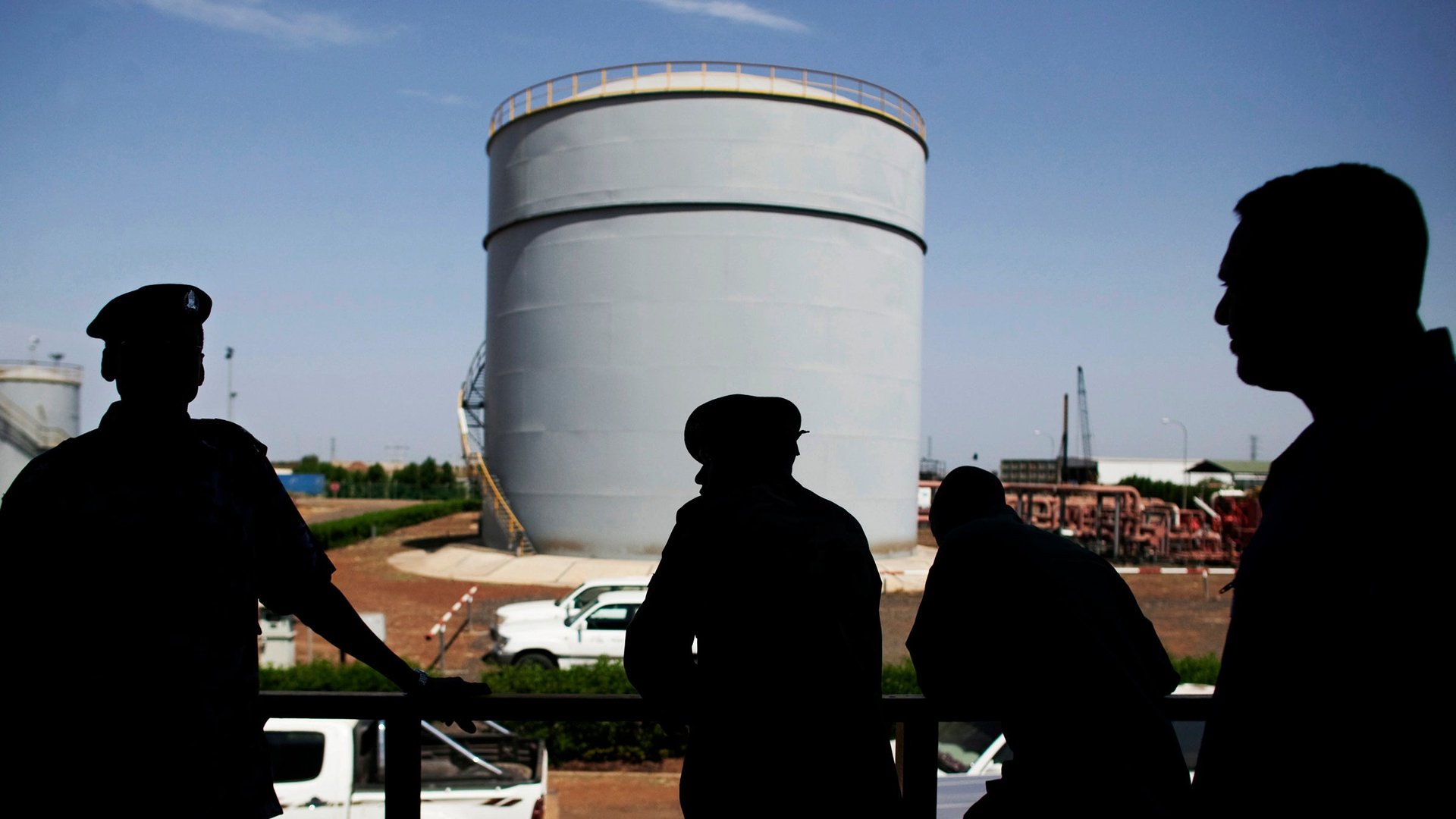Revealed: $75 billion in previously secret Chinese aid to Africa
Nigerian central banker Lamido Sanusi last month warned his fellow Africans that their relationship with China was becoming problematic. China was no longer a fellow emerging market, he wrote, and “Africa must recognise that China—like the US, Russia, Britain, Brazil and the rest—is in Africa not for African interests but its own.”


Nigerian central banker Lamido Sanusi last month warned his fellow Africans that their relationship with China was becoming problematic. China was no longer a fellow emerging market, he wrote, and “Africa must recognise that China—like the US, Russia, Britain, Brazil and the rest—is in Africa not for African interests but its own.”
A point in favor of his case: There’s no real knowledge of how much development finance China is lavishing on Africa because the country won’t disclose the figures. Independent yearly estimates range from $1.4 billion to as much as $18 billion.
Without transparency, it’s hard for anyone to assess whether China is on a massive resource grab—with China’s state-owned companies sidelining locals, foreign multinationals and good government reformers—or just deploying more traditional efforts to improve diplomatic ties in the hopes that commercial opportunities follow.
Now a comprehensive new study has found some $75 billion in unrecorded development projects between 2000 and 2011—and some $6.3 billion in aid flows each year. The money ranges from direct grants funding projects from dams to stadiums, to deals to finance and support natural resource exploration. For example, in 2006, Nigeria gave China oil drilling licenses in exchange for a $4 billion loan to build infrastructure.
The undocumented billions resonate because of accusations that Chinese aid is making it harder for more transparent (usually Western) donors to push for human rights and democratic reforms, and is simply designed to smooth the path to resource extraction. Critics site cases like Angola, where the government was able to turn down an IMF loan that required more transparency about oil revenue thanks to an interest-free loan from China’s Export-Import bank.
China has rebutted these criticisms firmly. Like Venezuela, India and Saudi Arabia, it refuses to join the Development Assistance Committee, which promulgates global standards for measuring and assessing development finance, saying it is a peer to the developing nations, not a donor. (Critics like Sanusi are starting to disagree).
PRC officials also say that releasing country-level data would complicate their relationships with donor countries. There are more practical problems as well: Chinese citizens may not be pleased that their country’s aid to Africa (just $15 billion less than the US during 2000-2011, although China’s total is likely underestimated), and China’s aid flows through 23 different ministries and agencies, making measurement more challenging.
Brad Parks, a former official at the Millenium Challenge Corporation, now co-heads AidData, the research organization behind the new study. He and his team built a new methodology to identify Chinese aid, using media reports, cross-comparisons and audits. While the data comes with all the caveats of a well-executed academic study, he expects that the headline figures probably understate Chinese financing in Africa. He expects that the defense and intelligence communities will be “falling over themselves to get this data.”
“We had people stationed in Beijing, going through archives and digitizing records with Ministry of Commerce officials, asking ‘Don’t you want the world to know how generous you are?'” Parks said. “The one-liner in 2009 that came back was ‘Everyone who needs to know about our generosity already knows.'”
Among those who know are leaders in Ghana ($11.4 billion), Nigeria ($8.4 billion) and Sudan ($5.4 billion), the top three aid recipients for China during the time period of the study. Some of these countries are quite dependent on this aid: Chinese financing makes up 5.3% of Ghana’s economy and 4.1% of Zimbabwe’s. The most dependent is Mauritania, where a full sixth of its national wealth comes from economic aid.
Burkina Faso, Swaziland, the Gambia, Sao Tome and Principe didn’t receive any money from the world’s second-largest economy. They recognize Taiwan, not the People’s Republic of China.